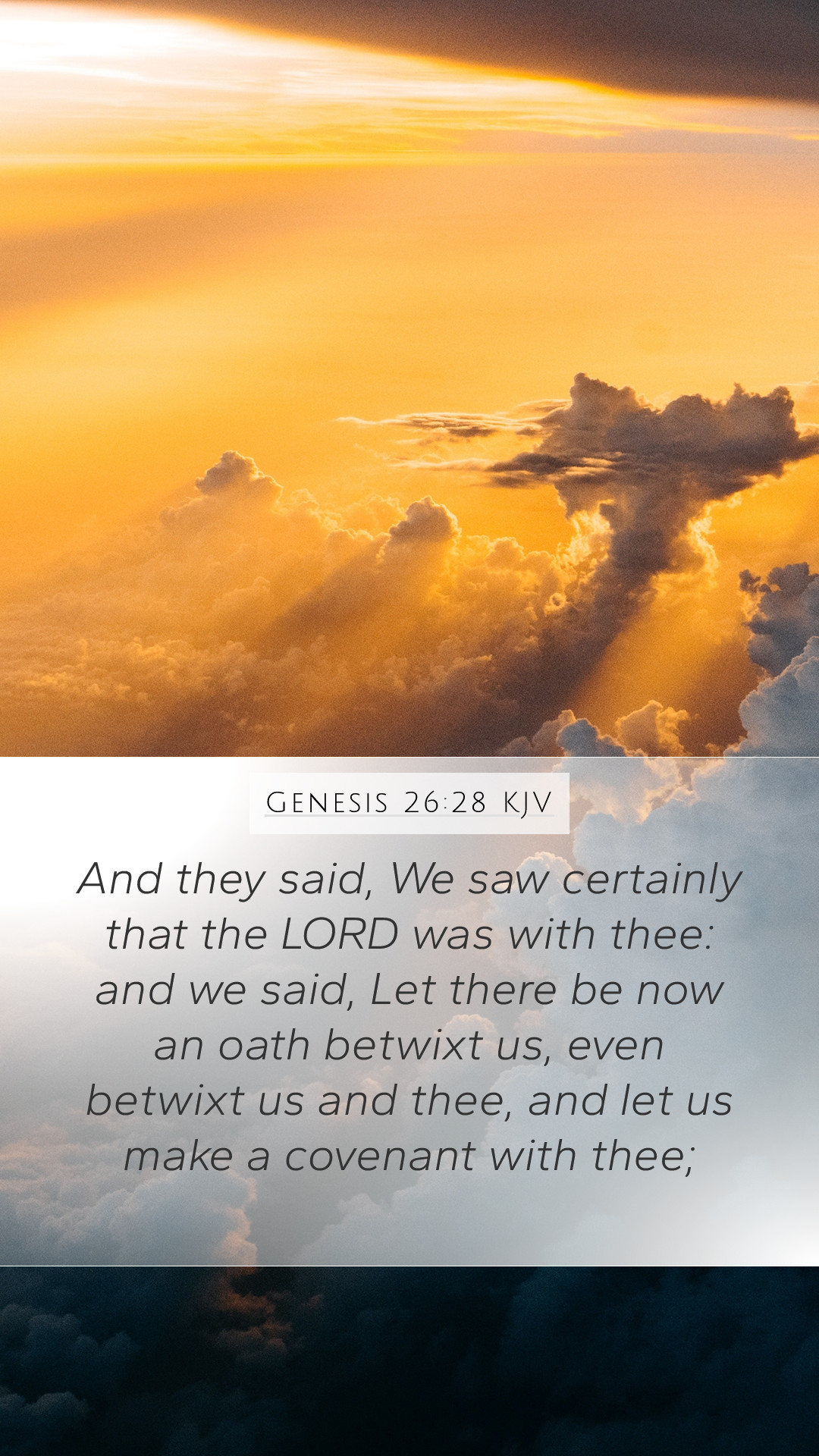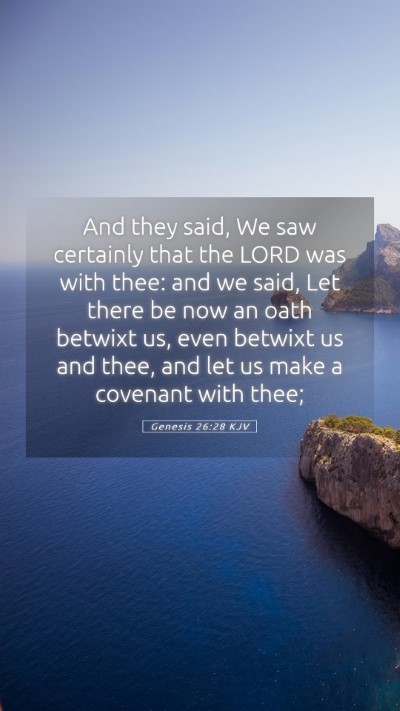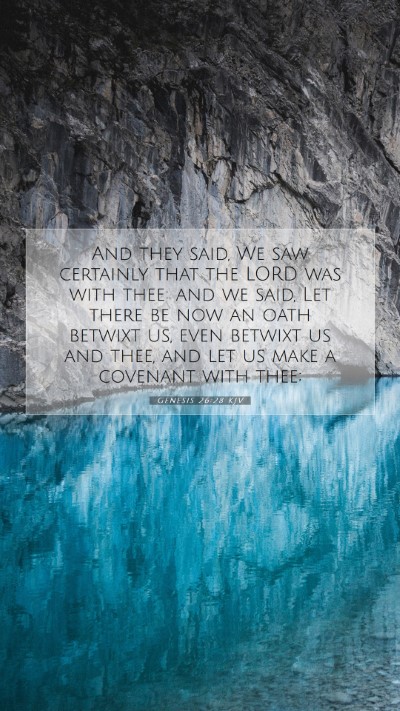Bible Verse Analysis: Genesis 26:28
Verse: "And they said, We saw certainly that the LORD was with thee: and we said, Let there be now an oath between us, even between us and thee, and let us make a covenant with thee;" (Genesis 26:28)
Overview
Genesis 26:28 captures a significant moment between Isaac and the Philistines, highlighting themes of divine presence, covenant-making, and the recognition of God's favor. This analysis will explore the verse's meaning through perspectives provided by renowned public domain commentaries, including those by Matthew Henry, Albert Barnes, and Adam Clarke.
Contextual Meaning
The context of this verse is important for its interpretation. Isaac had been living in the land of the Philistines during a time of famine. Despite challenges, he prospered immensely, which led the Philistines to acknowledge the favor of God upon him.
Divine Recognition
Matthew Henry's Commentary: Henry emphasizes that the Philistines recognized God's blessings upon Isaac. They saw how God was with him, illustrating that even those outside of God's covenant community can discern His presence in the lives of the faithful. This speaks to a universal acknowledgment of divine favor and highlights the impact of a life lived in accordance with God's will.
Making a Covenant
Albert Barnes' Notes: Barnes describes the idea of an oath as a serious commitment, reflecting respect and the desire for peace between Isaac and the Philistines. The act of making a covenant represents a profound agreement that can signify reconciliation and mutual goodwill. It also serves as a means to ensure security and lasting relations, a theme prevalent in many Biblical narratives.
Historical Context
Adam Clarke's Commentary: Clarke discusses the historical context of the verse, noting that covenants were common in the ancient Near East as a way to establish peace and mutual respect. The Philistines, recognizing that God was with Isaac, desired to make a formal agreement with him, indicating that they were impressed and perhaps intimidated by his prosperity and God's favor.
Spiritual Insights
This verse is rich in spiritual meaning, illustrating not only the relationship between Isaac and the Philistines but also the broader implications for believers today. The acknowledgment of God’s presence can inspire not only admiration but foster relationships based on respect and acknowledgment of divine favor.
Application in Daily Life
In applying these insights, believers are encouraged to live in ways that reflect God’s presence, ensuring that their actions uplift God’s name. Just as Isaac’s life showcased God’s goodness, modern believers can strive to be vessels through which God's blessings are evident, prompting others to seek relationships grounded in mutual respect and covenant blessings.
Related Scripture References
- Genesis 21:22-31 - Discusses Abraham making a covenant with Abimelech, paralleling the themes of peace and recognition of God's involvement.
- Genesis 26:24 - Shows God's direct communication with Isaac, reinforcing the promise of divine presence.
- Exodus 34:27 - Mentions God commanding Moses to make a covenant, illustrating the seriousness of covenantal agreements.
Conclusion
Genesis 26:28 serves as a profound reminder that God's favor can be recognized by all, leading to relationships built on mutual respect and the acknowledgment of divine providence. By studying this verse and its surrounding context, believers can gain greater insights into the importance of living in accordance with God's will and the impact this has not only on their lives but also on the lives of others around them.
As you engage with this scripture, consider how you can apply these teachings in your own life through Bible study groups, online Bible study, and utilizing Bible study tools to deepen your Bible verse understanding.


